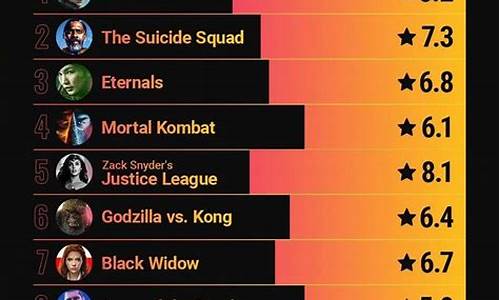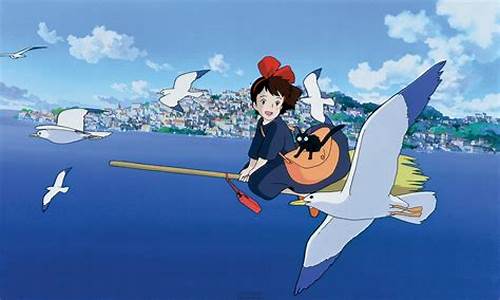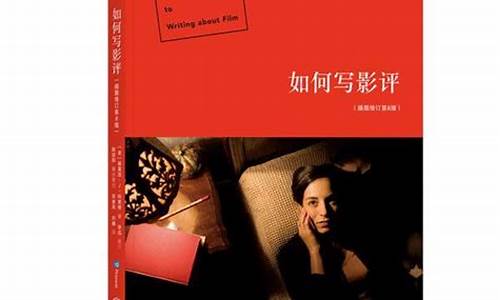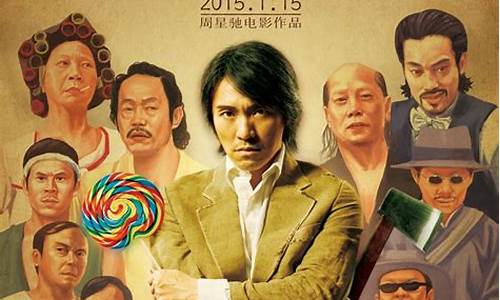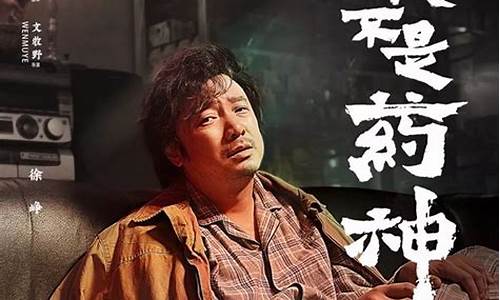yes or no影评_
1.《穿Prada的女王》影评
2.终极面试 影评
3.公主日记英文影评
4.关于狮子王的英文影评
5.求5篇英语影评或书评!
6.博物馆奇妙夜第一部的英文影评,200字左右,不要**内容介绍,要直接评论的
7.**《灰姑娘》英文影评
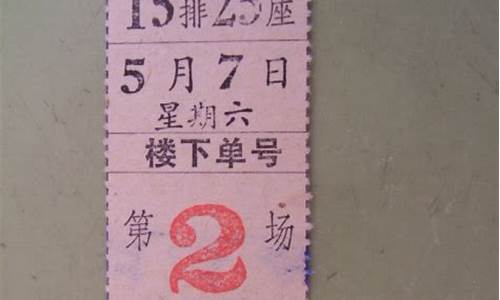
Disney has boldly recreated the Chinese Mulan story, used many new animation technologies, and added a lot of Disney's humor. The film has not only magnificent momentum, but also warm scenes, charming colors and moving plots.
迪士尼对中国的花木兰故事进行了大胆的再创造,运用了许多动画片新技术,加入了大量迪士尼的诙谐幽默。影片既有恢宏的气势,又有温馨的场景、迷人的色彩和感人的情节。
人物:
1、花木兰(Mulan)
演员?温明娜(配音)
花家的大女儿,是一个个性爽朗,性情善良的好女孩。在父母开明的教诲下,一直很期待自己能花家带来荣耀。因为年迈的父亲被征召上战场,伤心的花木兰害怕父亲会一去不返,便趁着扮成男装,偷走父亲的盔甲,代替父亲上战场去。
2、李翔(Shang)
演员?黄荣亮(配音)
带兵打仗的将军,花木兰的上司,在与木兰的相处中产生了感情,后结为连理。
《穿Prada的女王》影评
这部**,很棒,看完后,一个人,活脱脱地呆住了。
有很多片段,他们已经成了记忆的一部分,我们会尽力忘掉这些片段,仅仅是因为我们无法回到那时刻,改变他们。如果给了我这个可能,让我重回旧日十字路口,如果我能在那一刻预先知道了某种选择所带来的我并不愿发生的结果,让我收住脚步,转身向另一个方向迈出一步,我的历史,会不会就此更完美?
这部**,不但设出这种可能,甚至还试着给出了一个让人意想不到的答案:
是的,如果蝴蝶在那个时刻,没有飞走,而仅仅抖动了一下翅膀,在时间的链条的末端,将凭空多出一场飓风,更糟的是,没人知道风是在向哪里吹。
当一切都是未知的,我们只能自我安慰似的定我们所实际经历过并参与改变的世界是迄今为止最好的一种结果,当然,如果你认为那是最糟的会觉得舒服些的话也悉听尊便。有一种定,也就是影片中所提供的这种定,可能是我所能想到的最让人沮丧的了一种了,即,无论更改历史上的任何一个环节,都将导致一场无法预料到的灾难,(影片只有两处特例,即主人公为了得到监狱室友的配合,而回到过去,用钉子伤了自己的手,以及为了毁掉历史上的,而拿起了刀子,这两次过后,主人公都回到了既定的时空,不但没有带来重大的灾难性改变,甚至还为此受益)。释你有能力看到一个没有自己的世界的美好(正如影片最后三分钟的镜头)换作是谁,都要感到深深的失落。
主人公的不幸是家族遗传性的,但这种看似无休无止的不幸终因时代的进步,可以用影像记录下婴儿降生的过程而宣告结束,纵然这个生命没有胎死腹中,料想在他长大成人之后,在得知自己的这种能力后,也只有被关进疯人院或者自我了断两条路可走。或许不在这个尘世露面,是他能想到的最好的结局,但,即便这样,仍要有一个母亲为他的早早离去而痛苦不堪。
换句话说,如果一个人得到了可以扭转历史的能力,等待他的要么是历史的灾难,要么是自己的悲剧。而有两种动力使拥有此种能力的人的命运成为必然,即,悔恨与贪婪——要么是为自己的曾经做过的事情懊恼不已,要么是就是对正置身其中的生活状态不满,渴望改变,正是这两种情绪使我们不时产生要回到过去改变历史的冲动,也正是这两种情绪让人区别于神。
**中的主人公的所作所为,暗合一个宗教命题,既然我之存在只会为世人带来不幸,那么,我不入地狱谁入地狱?主人公手上的钉痕,隐隐暗示着殉道者式的苦恼。都可能在某一刻产生回到过去改变历史的愿望,这是人性导致的必然。然而这个愿望永远无法达成,所以人们才得以以现在的状态与关系存在于世。人们终日忙碌,或幸福,或困苦,他们期待着新的生命的降临,却又对冥冥一无所知,他们只能自我安慰似的为一切拟定一个个答案,一代代恪守着,以期无穷无尽地平安地繁衍下去。
人之所以存在,只因人不是神。
The film, great, after reading a person look just like to transfixed.
There are many fragments, they he become part of the memory, we will try to forget about these clips, just because we can not return to that moment, to change them. If you give me this possibility, let me return to the old crossroads, if I can know in advance that moment brought me a choice and do not want to place the results, I received stopped, turned to another step direction, my history, would not this be more perfect?
The film not only out of such assumptions may even try to give an unexpected answer:
Yes, if the butterfly in that moment, no fly away, but just shake a bit wings and the end of the chain in time, will be more of a hurricane out of thin air, worse, no one knows where the wind is blowing to.
When everything is unknown, we can only console themselves like assumptions we he experienced and participated in the actual change in the world is a result of the best so far, of course, if you think that the worst would feel better if also wish me it. There is an assumption, which is provided in the film that assumption, I might can think of the most frustrating of a kind, and Ji, Wu Lun Genggailishi on any link to cause the Yichang not Yuliao to the disaster, (film only two exceptions, the hero of the match in order to get the prison roommate, while the return to the past, with the nails hurt his hand, and in order to destroy the history of the bomb, but picked up the knife, which After two, the hero went back to the established time and space, not only did not bring a major cataclysmic change, even this benefit). Parole you he the ability to see a better world without their own (as the movie last three minutes of the lens) for as who should feel the loss deeply.
The tragic hero is hereditary in nature, but unfortunately the end of this seemingly endless era of progress because you can use video to record the process of baby born to an end, even if this life is not aborted, expect the After he grew up, in that their ability to post this, only to be locked in a lunatic asylum or a self-breaking of two paths. Maybe not in this earthly earance, is the best he can think of outcomes, but, even so, still he a mother for his early departure painful.
In other words, if a person was able to reverse the historical ability to either wait for his disaster in history, or is their tragedy. The two he the capability, power to the fate of the inevitable, namely, regret and greed - either for their own ever done regretting, either of which is the life of the state is actually dissatisfied with desire change, it is these two emotions so that we produce from time to time to back the urge to change history, but also makes it different from the God of the two emotions.
The hero of the movie has done covertly a religious proposition, since I brought the existence of only the unfortunate people of the world, then, What hened to the water? Hands nails hero, vaguely suggesting a martyr-like distress. Everyone can produce back in a moment the desire to change history, this is the inevitable human nature. However, this desire can never be reached, so people were able to present the status and relations are known to the world. People busy, or hiness, or hardship, they look forward to the arrival of new life, but knew nothing of the tied to, they could only console themselves one by one like the answer for all the development, generation after generation abide by the order of infinity multiply endlessly down safely.
Person exists, because people are not God!
希望有帮助
终极面试 影评
有点长
The Devil & the Gray Lady
All about vogue.
By Mark Goldblatt
ruman Capote, who had a stake in saying so, once famously declared, "All literature is gossip." He was wrong, of course, but it's the kind of declaration that bamboozles literary types by its very implausibility; something so obviously false must be profound, so it gets repeated at cocktail parties and invoked in book reviews (like this one) until it becomes an inside-out cliché, a false truism, a knowing nod towards nothing whatsoever.
Still, an interesting question emerges if you reverse Capote's dictum and ask whether all gossip is literature. It's a question that surrounds the most gossipy novel in recent years, The Devil Wears Prada by Lauren Weisberger, and percolates within the critical jihad the book ignited at the New York Times. The fact that the paper twice reviewed a literary debut by a previously unknown author would be noteworthy in itself; what's unprecedented is the fact that its reviewers twice ripped the book to shreds — arguing not simply that it fails as literature, but that it should never he been published in the first place.
Why all the fuss?
Weisberger, it seems, once worked as a personal assistant to Vogue editor Anna Wintour, and the novel is thinly veiled account of her nightmarish experiences at the magazine. That this should matter to reviewers at the Times is slightly bizarre — even if, unlike me, you care about Anna Wintour, or you think Vogue has made a significant contribution to Western Civilization. It's not as though Weisberger is sailing into morally uncharted waters. Saul Bellow's latest work, Relstein, is a thinly veiled account of his friendship with the critic Allan Bloom, and arguably Bellow's greatest work, Humboldt's Gift, is a thinly veiled account of his friendship with the poet Delmore Schwartz. Both of Bellow's books are warts-and-all portraits, and the same can be said, in spades, for Weisberger's portrait of Wintour. The fact that Wintour is still alive, whereas Bloom and Schwartz were deceased when Bellow immortalized them, cuts both ways. Wintour may be psychically injured by the earance of her fictional counterpart, Miranda Priestly, but at least she has the chance to distance herself from the ogre Weisberger gives us. With a nod to Capote, then, if at least some gossip is literature, why should Weisberger be pilloried for engaging in it?
None of which is to suggest that The Devil Wear Prada is great art. It is, rather, a wildly uneven book, by turns clumsily self-righteous and wickedly funny. The wafer-thin plot recounts the struggles of the narrator, Andrea Sachs, to maintain both her integrity and her sanity after she lands a "dream job" as personal assistant to Miranda Priestly at Runway. The detail that Andrea's real ambition is to write for The New Yorker would be a perfect ironic touch — she must endure the slickness of fashion in order to achieve fashionable slickness — except that the author seems to regard this as a altogether commendable goal. She is reminded to keep her eyes on the prize by her devoted boyfriend, Alex, who (gag me) teaches underprivileged children; also keeping Andrea grounded is her roommate Lily, whose hard drinking and promiscuity derive from the fact that "she loved anyone and anything that didn't love her back, so long as it made her feel alive."
The chapters with Alex and Lily are at times almost unbearable. Fortunately, they are offset by chapters in which Miranda Priestly takes center stage. Miranda is one of the great comic monsters of recent literature; Cruella de Ville is an obvious antecedent, but Miranda more closely resembles a Hermes-scarf wearing Ahab in pursuit of the great white whale of immediate, absolute indulgence. In Miranda's universe, two pre-publication copies of the latest Harry Potter book must be flown by private jet to Paris so that her twin daughters can read them before their friends; it's up to Andrea to make the arrangements on a moment's notice. Tough, but do-able. More finesse is required when Miranda asks Andrea to hunt down the address of "that antique store in the seventies, the one where I saw the vintage dresser." Of course, Andrea wasn't with Miranda when she saw the dresser, so she winds up trekking to every antique store — and, just to be safe, every furniture store — between 70th and 80th Street in Manhattan, grilling clerks to find out whether the famous Miranda Priestly had stopped by recently. Three days later, Andrea admits defeat . . . only to he Miranda inform her, impatiently, that she's just located the store's business card, the one she thought she'd lost. The address is on East 68th Street.
Miranda requires up to five breakfasts per morning so that whenever she arrives at the office, a hot meal will be waiting; reheating isn't an option. The other four must be thrown out because her assistants aren't permitted to eat in her presence. Nor are they permitted to hang their coats next to hers. Nor to request clarifications if her demands are indecipherable: "Cassidy wants one of those nylon bags all the little girls are carrying. Order her one in the medium size and a color she'd like."
There's a kind of grotesque heroism in this, an obliviousness to the feelings of others that is larger than life — and thus mesmerizing. When Weisberger's novel succeeds, it succeeds on these terms. No one who reads the book will forget Miranda Priestly.
Towards the end of The Devil Wears Prada, Andrea's novelist friend informs her, "What you don't seem to realize is that the writing world is a small one. Whether you write mysteries or feature stories or newspaper articles, everyone knows everyone." Indeed, it's hard for an outsider to grasp just how incestuous, how inbred, the New York publishing scene is nowadays. The odds of finding a non-conflicted reviewer for a gossipy roman a clef about the scene itself are therefore remote. In theory, this isn't a problem — as long as the reviewer roaches the task in good faith. (In good faith, for example, I should note that Weisberger's former writing teacher is a close friend and co-author of mine; on the other hand, her editor at Doubleday once turned down a book I wrote . . . and keep in mind that I'm really an academic, so I'm kind of bivouacked on the outskirts of the milieu Weisberger describes.) To say that the Times lacked good faith in reviewing The Devil Wears Prada understates the utterly unconscionable, and downright vindictive, way the paper went after the thing.
The onslaught began with a full-page review in its Sunday edition by former Harper's Bazaar editor Kate Betts. Betts herself was once Anna Wintour's protégé, a point Betts mentions in her final paragraph — not as a disclaimer but rather as an excuse to lecture Weisberger on the ethics of hing written her novel: "I he to say Weisberger could he learned a few things in the year she sold her soul to the devil of fashion for $32,500. She had a ringside seat at one of the great editorial franchises in a business that exerts an enormous influence over women, but she seems to he understood almost nothing about the isolation and pressure of the job her boss was doing...."
This may or may not be true, but it has nothing whatsoever to do with what's between the covers of Weisberger's book. That, however, is the least of Bett's concerns in a review which alternates between sniping at the author and sucking up to former Vogue cronies. "Nobody would be interested in this book," Betts declares, "if Weisberger were spilling the beans about life under the tyrant of the New Yorker." (Tell that to Brendan Gill whose memoir Here at the New Yorker was a bestseller in 15.) Betts refers to one of Weisberger's characters as "a pale imitation of the incomparable André Leon Talley" (For the record, I know more than a few people in the fashion industry, and they're all remarkably comparable.) and to another as "a cheap shot at the food writer Jeffrey Steingarten, whom she [Weisberger] should he been studying for lessons in how to write." This is nasty stuff. And it's of a piece with the rest of Betts's review — which displays all the emotional maturity and intellectual balance of Leo Gorcey in the old Bowery Boys films. Betts is not critiquing a work of fiction; she's putting up her dukes to defend her home turf.
You'd think Betts's outburst would suffice, from the Times's point of view, would stand as an awkward lapse in editorial judgment but nothing more. You'd be wrong. The newspaper, it turns out, was not through with Weisberger by a long shot. One day later, Janet Maslin weighed in for the daily edition — and matched Betts's spitefulness point by point. Maslin's review begins: "If Cinderella were alive today, she would not be waiting patiently for Prince Charming. She would be writing a tell-all book about her ugly stepsisters and wicked stepmother . . . dishing the dirt, wreaking vengeance and complaining all the way. Cinderella may he been too nice for that, but Lauren Weisberger is not."
Again, what's actually between the covers of The Devil Wears Prada is mere background noise; first and foremost, Maslin is reviewing not the novel itself but the idea of the novel. She refers to it as "a mean-spirited 'Gotcha!' of a book, one that offers little indication that the author could interestingly sustain a gossip-free narrative." With an indignant nod towards Weisberger's recent publicity tour, Maslin speculates that the author "can devote a second career to insisting that [the novel] is not exactly, precisely, entirely one long swat at the editor of Vogue." And again: "The book's way of dropping names, labels and price tags while feigning disregard for these things is another of its unattractive qualities. It's fair to assume that nobody oblivious to names like Prada will be reading this story anyway."
Curiously, Maslin neglects to mention the name Anna Wintour even once in her review. "That was very deliberate on my part," she later explained to the Daily News. "I think that when a tell-all author takes a cheap shot at a well-known person — in a book that would he little reason to attract attention without that cheap shot — then reviewers need not compound the insult (or help promote a mediocre book) by reiterating the identity of the target."
Fair enough, but then why review the book in the first place? Given how many books are published each year, and how few the Times actually reviews, why would the paper twice in two days go out of its way to hammer a first novel by a hitherto unpublished writer? (Another point of disclosure: The Times did not review my first novel last year.) The answer cannot be that The Devil Wears Prada was heily promoted . . . since even a cursory glance at its own bestseller lists will reveal many mega-hyped books the Times wouldn't touch with a ten-foot highlighter.
Of course, the Times has bigger problems these days — Jayson Blair's tendentious, fabricated reporting and subsequent resignation, Howell Raines's white-man's-burden agonizing and subsequent resignation, and Maureen Dowd's sneaky doctoring of a presidential quote — than the integrity of its book-reviewing process. In another sense, however, the treatment of Weisberger's novel is consistent with, for lack of a better phrase, an absence of adult supervision on 43rd Street.
公主日记英文影评
难得有如此佳作出炉,不写点东西觉得对不起导演对不起自己,只怕表达不清诸多感想,写出来反而对不起观众了。
敢说没有人能在谜底揭晓前猜到真正答案,这是部值得好好思考的影片,换句话说,这又是一部需要慢慢欣赏咀嚼,随剧情发展而不能提前看结果的影片。所以。剧透慎入。
未出,只能用英文字幕啃了一遍,也许一些小细节理解有误,但不影响大局,毕竟这类情节剧着重的是对心理活动的发展和反映,是思维交锋时的乐趣,而不是研究透到底是事情发生的时间背景为何。
——————————————————————————————
首先按剧情发展顺序交代一番,好让一些有疑惑的同学明白影片究竟怎样发展,唯一一个问题的答案究竟是怎样得出的。
从无数应聘者中脱颖而出的八个不同种族文化背景的人被选入参加一个超大型的神秘药物巨头公司的最后一轮面试,面试在一个类似于密室的房间中进行,八个座位,每个人身前有一份试题或者说一张纸
首先一个人讲述面试的要求(很重要,是整个影片的线索):
"There's no law in this room but our law,
and the only rules here are our rules.
there's one question before you,
and one answer is required.
If you try to communicate with myself,or the guard,
you'll be disqualified.
If you spoil your paper,intentionally or accidentally,
you'll be disqualified.
If you choose to lee this room for any reason,
you'll be disqualified.
Any questions?"
意译如下:
“在这个房间里没有法律,有的只是我们的规则。
在你的面前有一个问题,你需要给出一个答案。
如果你试图与我交流(在影片中即为对摄像头讲话)或与保安交流,
你将被取消资格。
如果你有意或无意的图画你的考卷,
你将被取消资格。
如果你因为任何原因离开这个房间,
你将被取消资格。
有什么问题么?”
之后限时为八十分钟的面试正式开始。所有人发现所谓的考卷只是一张白纸。
很尴尬,第一个淘汰的人是唯一的亚裔,广东话,大概是按照香港同胞形象设计,她秉承了中华民族勤奋好学刻苦认真的优良传统,打算在白纸上写下一整篇庄严肃穆的自荐书。写下第一行字后便被驱逐,此时大概是77分钟。后来,应聘者由此推出,要求中所谓的图画考卷不一定是画花,而是根本不能有任何书写痕迹。
之后影片主角之一,姑且称作WHITE,在整场面试中都起着推动者和组织者的角色,如果真的是群面,大概真的会脱颖而出。他说出一个重点,即关键不是HR说了什么,而是他没说什么,亦即所有未被禁止的行为都是被允许的,由此,剩下的七个人可以站立走动说话甚至破坏房间中一切,当然,也可以互相残杀。
然后,主角们做出了第一个推测,纸上的字也许不是肉眼可见而是光显的,所以他们试了很多种方法,包括正常的灯,应急灯等。之后第二个推测,是否是铅笔画阴影之类的显示,再次推翻。第三个推测,水显,推翻。第四个推测,纸张照相显影,设防火喷头中喷出的是显影液,而应急灯光则是暗室环境,最吸引人的推测,可惜结果还是失败。
这时,Brunette被White坑害,烧掉了自己的考卷,失去资格,此时为四十分钟,还剩六人。之后,White又诱导Deaf撕掉自己的考卷,失去资格,此时为三十四分钟左右,Deaf大概是与爱情片《亚当》中男主角相似的亚斯伯格自闭症患者,或者说是比《The Big Bang Theory》中Sheldon更严重的多的天才型交流障碍。Black崇尚合作对White的行为忍无可忍,一拳击昏,绑了起来。29分钟时White发病,从影片中可知这是当时十分流行的一种不治之症。
曾当过兵的Brown猜测一切是场游戏,而剩下人中有HR安插的内部间谍,遂拷问学心理的Dark,未果。White病情加重,为救White,Dark与摄像头交流,被逐出房间,取消资格。Blonde终于找出药,救了White。
之后,White终于说出了自己对问题和答案的理解(和我一开始的想法一致)问题就是他们八个人,而答案就是只有一个人能留下,按照White的想法他们必须用尽手段,直到只剩下一人。这一想法把在场应聘者都雷倒了,但是他们马上陷入一场关于保安配枪的争夺战,White最终胜利。在枪的逼迫下Brown主动退出,Blonde在推出时耍了个小手段,结果使Black中枪,二人皆以为Black身亡,此时计时器到点,而屋中还剩二人,White渴望与幕后人交谈却被逐出,原来在三十五分钟时,Deaf曾对计时器做了手脚,把时间播快。于是,只剩下Blonde一人。
最后,Blonde灵光闪现(不得不说这个结果安排的巧合性太强),用Deaf遗留下的眼镜和灯罩的玻璃碎片自制放大镜,在考卷上找到如下字样 "question 1",再回忆起开始的考试要求,提的问题只有一个,那便是前面引用的考试要求的最后一句话,"Any questions?"所以这场面试的唯一答案便是"No."(当然,也许Yes也算对)而最后我们也终于发现,Deaf便是整个公司的幕后老大,所选的人便是Deaf的助手。
结局,Black并没有死,中含有该药物公司最新研制出的神奇胶囊,rapid cell regeneration,即给人超强杀毒自愈能力的药,让Black获得了新生。而Blonde也接受了这一份工作,可以想见,人类的未来会被这种药完全改变。
—————————精疲力竭的分割线——————————
看过很多部关于密室中发展,众人智慧交锋的影片,看过此片的人大概很容易想起《电锯惊魂》系列,由此也想到《死神来了》等,但不得不说,《电锯惊魂》中编剧显现的智慧是远高于我们水平的,就好像《名柯南》中的剧情一样,哪怕给我们再多的线索,也只能等待导演去揭穿谜底,且《电锯惊魂》是以血腥搏出位的商业片,而此片则更类似于一般的剧情片,你能推出一些结果,但结尾却又让你惊讶。如果你看完会联想到《心慌方》系列,那就又接近了些,但此片还是少了些许血腥,多了丝推理和心理变化的乐趣。有些人可能还会联想到《大逃杀》但我想牢骚几句,《大逃杀》只能算是题材出新,从剧情的设置和节奏上来讲都摆脱不了幼稚不现实的问题,而相比之下德国的《死亡实验》则优秀了太多,严重推荐同学们去观赏,赤裸裸的人性的实验,重在真实。此外,此类推理影片还有《九死》,《玩命记忆》,《致命ID》甚至《这个男人来自地球》等,小成本却有大乐趣。也有人用《电话亭》来做比较,不得不承认《电话亭》导演对节奏的掌握堪称无人能敌,结尾也巧妙无比。但其中封闭环境中推理的发展交锋的乐趣便不及此片。毕竟二人对话的发展不如八人来的容易。
说现实了也许导演想反映经济危机下找工作的难度,想反映传染病的流行对人类的危害。但如果只看人物内心,White是典型的真小人,而Brown则是君子。但其余人又能幸免于这场人性的考验么?在Deaf被骗的时候没有人阻止,在Dark被拷问的时候没有人站出来,在White生命垂危的时候Brown还是眼睁睁的旁观,在最后,每个人都有勇气去按下扳机,为了一个工作或者说一个不甚明确的目标,每个人都自私到能牺牲掉别人的生命,牺牲掉不属于自己的一切。合作与自私该如何选择,只有在不涉及个人利益的情况下才会有美好的合作么,或许合作就是要有牺牲精神,而在这个个人英雄主义的年代,我们缺的正是这种牺牲精神。但在利益的世界里没有圣人存在。
可能会有人研究BUG,诸如最后一只脚在门内究竟算不算出去。但我觉得如此一部超现实而注重反映内心交锋的**,有BUG再正常不过,也实在没有什么必要去深究。导演要表达的,我们接受理解并思考了,过于形式化的东西又何必去管。
最后一句:一直觉得剧本剧本乃万剧之本,没有那么高的欣赏水平去研究诸如长镜头的使用诸如光影效果诸如剪辑水平等,但光以剧情而论,如果你也是有点小小的变态,喜欢研究心理的话,此片是难得的佳作。
——————————补充于6月10日————————————
又回来看了一些别的影评,关于临床试验及洗脑的说法很新颖,当时英文看的头大,看过就没有过多思考。现在可以拿出来讨论一下,也算是延续影片中推理的快感,如果有更多人参与进来想必会很有意思。
持临床试验观点的人的证据主要就是影片开始的清理血迹,脚后跟的创可贴,科学怪人DEAF脸上的挫伤,还有被拷问女身上的其他几处刮伤。好,如果我们设这真的是临床试验,而且试验真的是反复进行的,那只有两种可能,第一,除了极少数人,剩下的大部分人都一直是托,从剧情发展来看,我认为这个可能性极小,Black或者Deaf都是托?能演的这么像也未免太不易了,而且既然是试验,那只对一两个人反复试验也实在是不值得。那结果就应该是第二种,所有人在试验后都被下药失去记忆,那自然得出一个结论也就是一切都是这家公司演的戏,关于DEAF是老大的说法也就站不住脚,也就是这八个人都是棋子而已,他们都是在一个虚拟的剧情之中罢了,但是最后Blonde又是真真切切猜出了问题的答案,如果是试验又何必真的设计出这个问题呢。加之考虑到他们开始清理血迹的时候相当镇定,创可贴应该是防止高跟鞋磨脚?(这个女生可能会更有发言权),后来面试的整个过程也很正常。我觉得只有腿上的挫伤最不好解释,但也有可能如片中所说是家庭虐待等原因。包括面试官一开始所说的“我很抱歉你们受到的待遇并不好,但一定的压力是面试必须的”而导演也并没有交待他们到底受了何种待遇。
综上,我个人的结论是,导演也许是故意留一个小的开放性的可能,但如果说是临床试验或失忆,证据未免不足,所以我还是更倾向于正常结果。欢迎大家加入讨论。
关于狮子王的英文影评
If "Produced by Hollywood" represents the film of big production and big star, then "produced by Disney" must be engred with the trace of fairy tale. "
Princess Diaries" is a new era of "sparrow to phoenix" story, and the actress Anne Hathaway has been regarded as a new generation of "Audrey Hepburn" type princess.
The film tells the process of growth and growth of the mind, not only the princess's diary, but also from the responsibility, confidence diary.
如果说“好莱坞出品”代表着大制作大明星的**,那么“迪斯尼制作”一定印刻着童话的痕迹,《公主日记》是新时代的“麻雀变凤凰”的故事,而女主演安妮·海瑟薇也被看成了新一代的“奥黛丽·赫本”式的公主。
影片讲述成长的过程和成长的心事,不仅仅是公主的养成日记,更是从责任、自信的养成日记。
主要剧情
15岁的高中生米娅与母亲生活在美国,但她十分不自信,也常常遭到同学的嘲笑。就在她16岁生日那天,她与祖母见面后发现这个优雅的女士是欧洲小国吉诺维亚的女王,米娅正是这个国度的公主。刚开始米娅十分不愿,在母亲的调解下米娅的态度才有所缓和。
为了让米娅顺利继承王位,女王不得不对孙女进行一系列的改变,令平时生活便不拘小节的米娅十分困扰,甚至跟好朋友之间也发生了冲突。米娅的身份被好事的同学揭露了,她一下子受到了媒体的高度关注。突如其来的一切让米亚想逃避一切,幸好在父亲的日记里,她重拾了自信。
求5篇英语影评或书评!
The Lion King
The Lion King is a glorious animation that praises justice and love, castigates evil and conspiracy, shows respect to the principle of the circle of life, and discloses a philosophy of the whole life. After viewing the film, I would like to share my impressions of this moving animation from the notes taken in the class here.
1 Blood is thicker than water
This proverb is embodied thoroughly in this movie. Simba grows up with the company of his parents' love. His mother Sarabi is gentle and elegant. Although she is not mentioned frequently in the movie, but the audience can infer that Simba' s good manner is owe to her utmost care. While Simba' s father Mufasa is serious and mighty. He teaches his son skills to survive – such as pouncing – and principle which would be useful to Simba in his whole life, such as" There' s more to being a king than getting your way all the time. " " As a king, you need to understand that balance of life and respect all the creatures." " Being bre doesn’t mean looking for trouble" and so on. Once realizing Simba is in danger, Mufasa will run to rescue his son immediately. I Believe that most of whom he seen the movie will be moved by this scene: Mufasa runs to the gorge and ses Simba from being trampled to death by the stampeding wildebeests, he leaps and dodges, comes close to Simba, holds him in mouth and puts his son in a safer place. But when he claws himself up the steep cliff side and tries to get on, he is pushed back down into the gorge by Scar and died. What makes Mufasa ignore the danger coming to him and run to rescue his son? What makes the audience so moved and can' t help tearing? Yes, it is the love of Mufasa, the truly and deeply love which is willing to be given but for no feedback from a great father.
2 A friend in need is a friend indeed
Simba is in a loss after his father' s death. He runs away from the pride lands and faints from exhaustion on an open plain. Fortunately, Pumbaa and Timon se him just in time. They carry Simba to a shady place and wait until the lion cub comes to, and then they keep Simba in their place and share their problem- free philosophy with him, just as Timon tells Simba" You should put your past behind you”. So the phrase" Hakuna Matata" helps Simba to release from depression and self- condemning, and their friendship makes Simba live hily there. Then Simba' s another friend- Rafiki ears, he is glad to see Simba is still alive, but at the same time, he also hopes Simba to exert himself and take the responsibility to be the king again. So one day, Rafiki finds Simba and leads Simba deep into the forest .He helps Simba to" see" his father. The lion cub is inspired by the late king, and clears the puzzle in his heart. Rafiki also conducts Simba to find a way to future and to take his responsibility that owes to him. " The past can hurt, but the way I see it you can either run from it or learn from it." Simba chooses the latter and goes back to his kingdom to challenge Scar. Surely his loyal friends-Timon, Pumbaa and Rafiki-all gather to help him, just as Timon says: " If it' s important to you, we' re with you till the end." They fight brely, and defeat the evil Scar, clear the path for Simba to be crowned king of Pride Rock at last. Conclusion can be drawn that it is the firm friendship that supports Simba, makes him feel that he is not alone, gives him strength and helps him to triumph.
3 The spirit of looking back brely and forward hopefully
Before the truth uncovered, Simba thinks he himself leads to his father’s death .He runs out of pride land, and runs from the past as well .The voice of himself “What would it prove anyway? It won’t change anything .You can’t change the past” dwelt on in his mind. But under the help of Rafiki, Simba finally knows that he doesn’t he to change the past. Since it had already hened, it’s no use to regrets doing it, the wise way is just let it be, but not forgetting the experience gained from it. So his Father’s words “You are more than what you he become .You must take your place in the circle of life” rekindle in Simba a long forgotten ambition to rule, finally he faces his past brely, gets the sense of responsibility and goes back to fight for his kingdom with the help of his loyal company .The lion king’s rough experience inspire me a lot. Surely, there are indeed many things that makes us feel painful and fearful, but once they hened, they need to be faced up instead of being oided. What we should do is to make a deep thought and decision about how to take the next positive step. Maybe it will takes a long, hard time to make them, but it doesn’t matter, because oiding reality only means burdening one’s soul and constraining one’s courage. Human beings need to go ahead because there will be wilder prospects waiting to be explored .The past maybe hey and gray, but the future is bound to be hopeful and bright-as long as you unload burden, pick up the spirit of “laughing in the face of difficulty” and greet future positively and aggressively .So no matter how long the pain would last, you should remember not to let the pain disturb your normal and daily life too much, just arrange the mind and take the first step brely, then you will finally conquer the difficulties and find you yourself he already stepped out of the gray past and stride forward into the indefinite but surely hopeful future.
如果您还有什么不满意的,请发消息给我,并附上问题的连接,谢谢
博物馆奇妙夜第一部的英文影评,200字左右,不要**内容介绍,要直接评论的
1.Avatar is directed by James Cameron. The two main characters are Jake Sully, played by Sam Worthington, and Neytiri, played by Zoe Saldana.
Clones named Avatars are sent to Pandora Planet to persuade people there to lee the planet so that human beings can exploit a rare mineral. Jake is sent there to control his Avatar. However, he comes across Neytiri and they fall in love with each other. Jake begins to see that nature and the planet should be protected. At last he and the people there work together to defeat human beings and send them back to the earth.
3D technology and the beautiful natural scenery are the two highlights of the film. The message of the film is simple — human beings should protect nature and live in harmony with it.
2."The Pursuit of Hyness" is a simple inspirational movie. It is not pretty actors, no fancy pictures, no touching music, but can also attract you read on law-abiding, because it has good enough story, plain but not mediocre!
Two of the film places the novel, though intentionally set, but that is not offensive, not far-fetched, pregnant with meaning.
First: When Chris (Will Smith plays) to see graffiti in the "hyness" spelling error, he said these words: There is no y in hiness, There is i. (y or Why). This line is extremely clever setting, it also aims to express through the entire film. Yes, there is no hiness in the why, the only others only their own hiness. Why blame others than their own hiness is meaningless, only rely on their own can be hy.
Second: when the movie started, Chris was in the crowd jammed the streets to push forward, in the smiling faces in only his bewildered, stood helpless with. And towards the end of the film, Chris was in the same place, look left to meet the emotional tears and lause for his rallying. In the calendar through suffering, sorrow, abandonment, abjection, helplessness, despair, after Chris with patience, hard work and attitude of never giving up in exchange for part of his life, the good old days. So in the moment through the probationary period, Chris is hy.
**《灰姑娘》英文影评
1
I must admit, the idea behind Night at the Museum is very clever. At night at the natural history museum in New York the exhibits come to life and wreak hoc thanks to a mummy's curse. It's up to the new night security guard Larry (Ben Stiller) to keep the chaos from spilling out into the streets of New York and keep the exhibits from perishing in the light of day.
Larry is left this task after three longtime night guards, played by legends Dick Van Dyke, Mickey Rooney and Bill Cobbs, are let go. Let's just say they are a little bitter about being let go. They are kind enough to lee Larry an instruction manual but when Larry gets cocky, thinking he knows how to handle this situation, things go from weird to worse.
Larry would not he taken this job but his ex-wife Erica (Kim Rer) threatened to take away his son Nick (Jake Cherry) if he didn't find a steady job and place to live. No points for guessing that Nick will get in on the museum madness. You also get no points that the pretty museum tour guide, played by Spy Kids star Carla Gugino, will become Larry's love interest.
The best part of Night at the Museum is Robin Williams as President Teddy Roosevelt. Coming to life nightly to ride his horse throughout the museum, Williams' Mr. President is the most helpful of the museum exhibits and of course when it comes to delivering the moral of the story who better than a former President. Of course, Williams can't help but ham it up a little, but you expect that from Robin Williams.
Ben Stilller seems at a loss to keep up with the goofy CGI madness of Night at the Museum. Rushed through the exposition, his character is essnetially a deadbeat who nearly loses his kid because he's so lazy. Not exactly a winning character. Once inside the museum, Stiller's Larry vacillates from coward to cocky but mostly just runs around confused and angry.
Director Shawn Levy and writers Garant and Lennon hit all of the typical family movie beats, a lesson learned, bathroom humor and a monkey. They also toss in a couple action movie cliches for good measure including a chase scene involving an ancient stage and a miniature SUV. Trust me, my description reads far more interesting than the actual scene.
2
This whole movie is one giant leap into the magical realm of suspended reality that Hollywood is so good at creating. Can museums really come to life? No --- but man, it be cool if they did. Keep your eye out for my forite (and in my opinion, the funniest) scene from the film in which Larry finally confronts Attila the Hun, who makes a habit of chasing him down and attempting to dismember him each night. Larry squares off against Attila and his barbaric horde, and proves he's in control by bringing Attila to tears. You he to see it to truly reciate the humor. I also enjoyed the keys stealing monkey, Dexter, and his crazy penchant for causing Larry a lot of trouble. As far as special features go, this particular disc only has 2 audio commentaries ailable. If you're wanting more than that in the special features department, you're probably better off purchasing the 2-disc special edition.
3
The movie is almost exactly as you expected it to be. CG fun, family friendly with a soft conflict and cute resolution. It did everything it was supposed to and felt very formulaic. The movie earned a few giggles out of me, but I am not calling it the comedy event of last year. I think if you he kids this movie would be perfect for them. It is light, cute and has some cool imagination behind it. It had a very Jumanji/Zanthura feel to it, but even lighter still.
Some of the CG was very good. Like the Dinosaur that we all saw in the preview. He was awesome. Some of it was not so good, really bad layering and backdrops, it felt very rushed and is very noticeable to the normal movie watcher. It kinda lees you going hmm, that looks kinda weird. Its not as bad as it could be, but you do see it and makes me wonder, if they ran out of money and had to skim a bit.
The movie comes with a truck load of actors in the movie. All of whom did fine. I didn't feel love for anyone, but I wasn't turned off by anything either, this movie did just what it needed to, to get by. [tag]Ben Stiller[/tag] was normal Ben Stiller, doing his normal guy thing. No character, no surprises as far as that goes.
I think it's rentable for sure, and if you he kids, its a for sure recommendation. I would think it would still be a good choice to take them to see in the theater, if you are looking for something for them, and don't want to go see Bridge to Terabithia this weekend.
4
I was surprised at how much I enjoyed this one. Yes it's silly and predominantly a children's movie, but it also had some humor in it for the adults. I guess it reminded me of all the old Bugs Bunny cartoons I grew up watching. I enjoyed them as a child, but watching them again as an adult I saw whole other levels of humor that I never got as a kid. There were a lot of great comedians in this one, too. Ben Stiller, Owen Wilson, Robin Williams, etc. Stiller takes a job as a night watchman in a museum only to find out that the exhibits come to life after closing. Chaos ensues. It's not high drama filled with cutting social commentary, but you'll at least laugh.
5
I am so impressed that there was no bad language or in the movie. I am not sure if the mom had a live in boyfriend or not but if she did they didn't focus on it so your kid may not even pay attention to it. Being a Ben Stiller movie it was not as funny as I expected because I was expecting a laugh all the way through and loud movie but it was a normal comedy. I am giving it a 5 star rating because it had top-notch actors and the creators and actors were able to keep it clean, something rare in the movies.
It is a tough bet to retell a story which has already been told not once but many number of times. We all know what hens in Cinderella, but it would take Disney to make an already known story to be interesting. The way this version of Cinderella has been told makes all the difference. Disney and Fairy tales are made for each other so much, that no matter how many times they tell the same story, it is still as interesting as watching it for the first time. Throw in some top class CGI to the fairy tale, and voila you he a stunning movie, and yes the movie was stunning, be it the palace, which i believe was CGI, the performances by the artists and above all the screenplay had been extremely well written all over the movie. Thankfully this one is not a musical like its predecessor, from Disney.So full marks to the director Kenneth Branagh, and full scores to Lily James for portraying the most loved character of all times. Also a special mention to the characterization of the prince,played by Madden, that rather than being portrayed as the lover boy Prince Charming, who just falls in love over Cinderella, in this version he shows his character by standing up for his love.
声明:本站所有文章资源内容,如无特殊说明或标注,均为采集网络资源。如若本站内容侵犯了原著者的合法权益,可联系本站删除。


